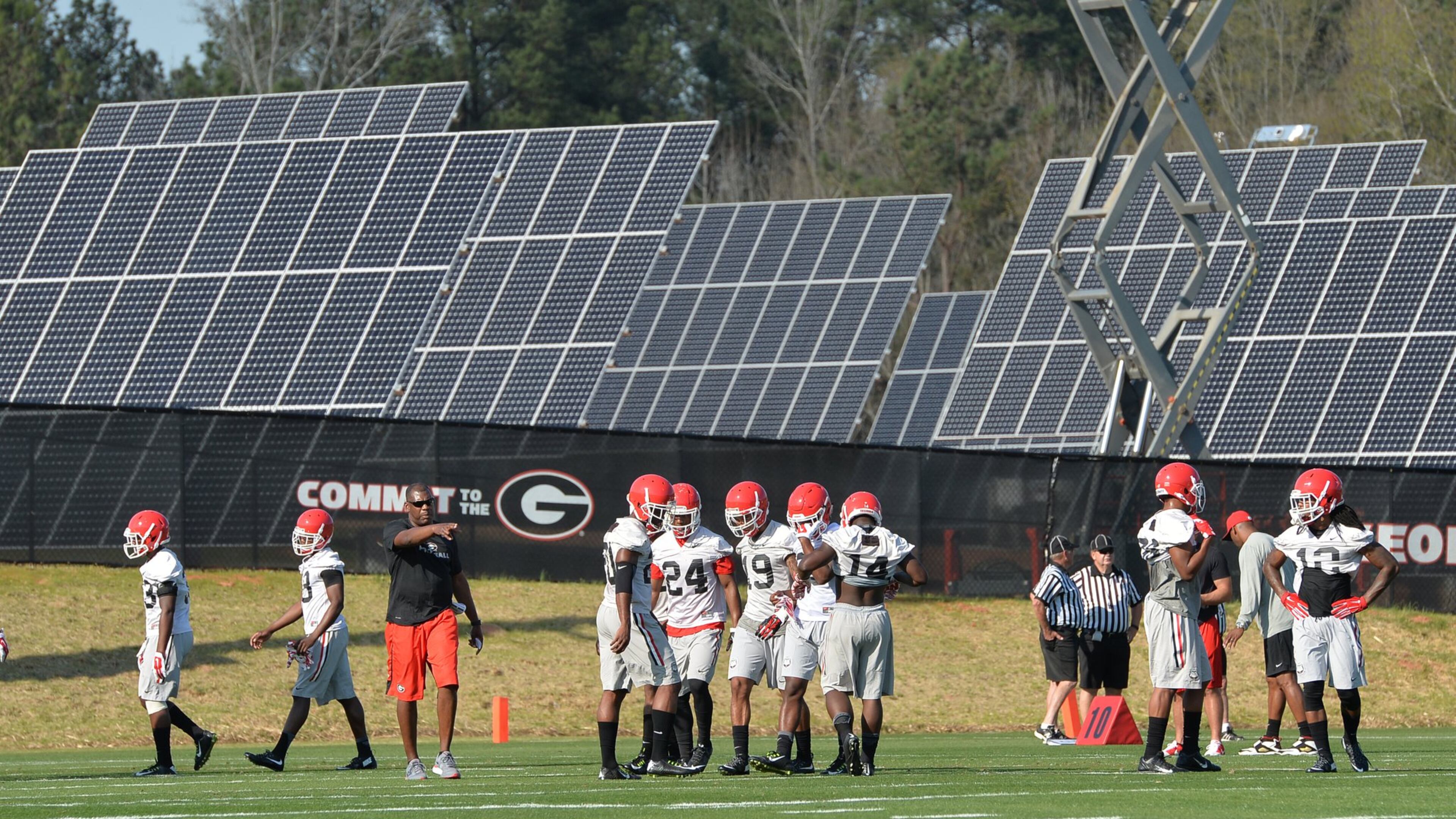Kempner: A new way to curb Georgia regulators?

There was one particular moment when state regulators didn’t rubber stamp Georgia Power’s plans in recent years.
It happened after the power company turned in long-range plans showing that it wouldn’t generate even a flicker of solar power, at least not in the next 20 years.
That's when Lauren "Bubba" McDonald took a shocking stand for an elected member of the Georgia Public Service Commission: He disagreed with the state's Big Brother of Light & Air Conditioning.
Thanks to a push for solar by McDonald and a couple of his colleagues back in 2013 and again last year, Georgia Power has jumped deep into solar generation. The state has become a national leader — at least in terms of growth rate — of a relatively beautiful and clean source of power.
Now, a state legislator has proposed forbidding PSC commissioners from ever doing anything like that again.
It's not their place to set energy policy, said State Rep. Don Parsons, R-Marietta, who chairs the House Energy, Utilities & Telecommunications Committee.
His House Bill 479 would bar the PSC from recommending or mandating any changes to the long range plans that Georgia Power is required to submit for PSC approval or denial.
Solar power advocates are howling. (Back story: I’m told that big utilities’ falling solar costs make it a decent deal for consumers, but it doesn’t generate as much profit for the company as traditional power plants.)
PSC commissioner Tim Echols labeled the bill the "Solar Power Death Act."
The PSC’s McDonald has been critical, too.
“Georgia Power has a monopoly, therefore there needs to be some regulatory oversight,” he told me. The company is “one of the best run utilities in this nation … but I don’t agree with everything they do.”
A lock on the state
Normal businesses deserve plenty of freedom. But tighter regulation is crucial when the government grants Georgia Power a lock on selling residential power in much of the state.
So legislators are bound to invite skepticism if they attempt to curb the PSC on the one issue where it’s shown some gumption to take on Georgia Power. There’s also some confusion among renewable energy advocates about what sparked the legislation.
And here’s another twist: Georgia Power says the legislation isn’t necessary, according to a company spokesman I emailed.
The PSC’s planning process on energy “was approved following extensive work by the legislature more than two decades ago and the law gives the Georgia PSC the authority to modify or alter the plan when such action is proven to be in the public interest,” he wrote.
Not anti-solar
Parsons told me his bill isn’t intended to be anti-solar or anti-renewables. (Solar advocates I spoke with have considered him an ally.)
Energy policy, he said, should be handled by the state legislature rather than the PSC. Parsons also told me that for years he’s been saying Georgia should have an energy policy.
Should isn’t the same as will.
Parsons has been on the state house’s energy committee for 23 years. Roughly the last nine or so he’s been its chairman. Yet he said he couldn’t recall any past legislation to set the stage for such a policy.
One thing the state doesn’t need is any more of a vacuum in balancing the public good with the interests of a power company that’s been given a lock on customers.
Parsons insisted that won’t happen. We’ll see.
He predicted the legislation, which isn’t expected to be voted on this year, will be the subject of hearings in the late summer or fall.
Find Matt on Facebook (https://www.facebook.com/mattkempnercolumnist) and Twitter (@MattKempner) or email him at mkempner@ajc.com.



